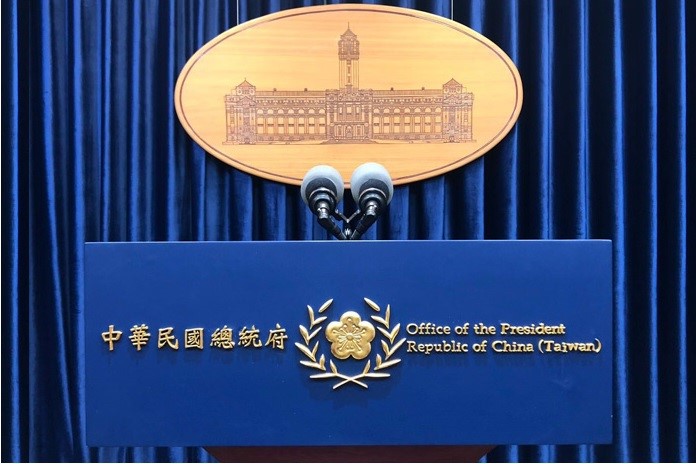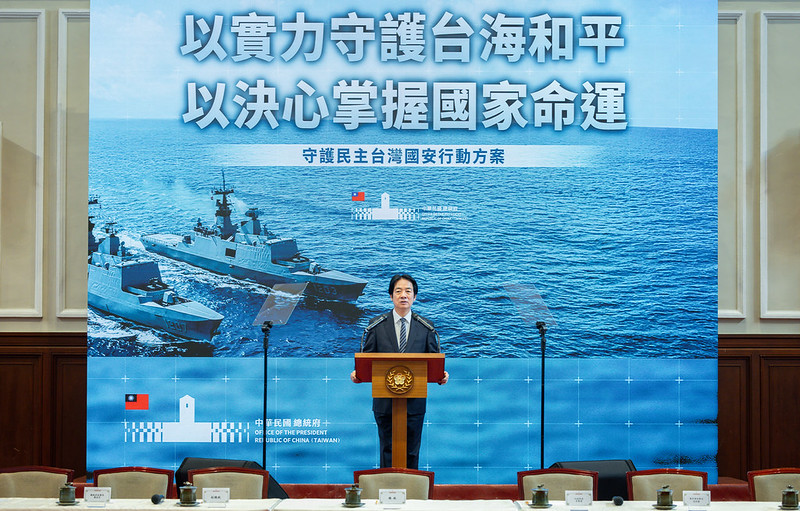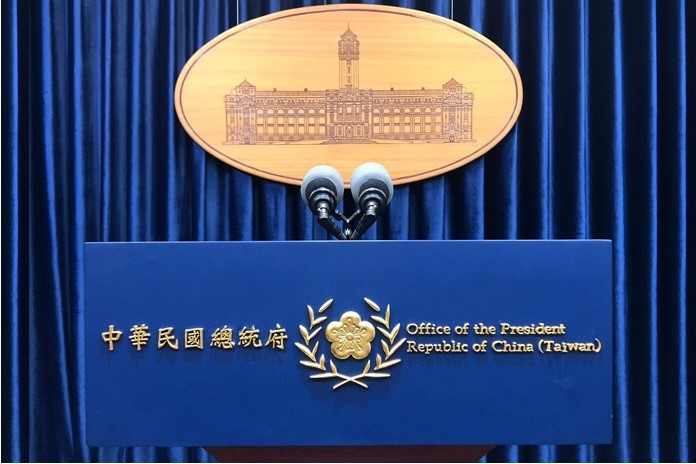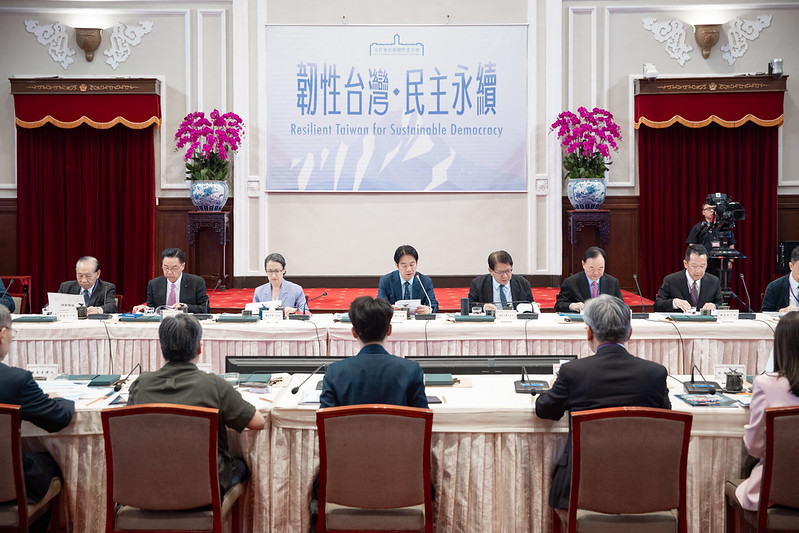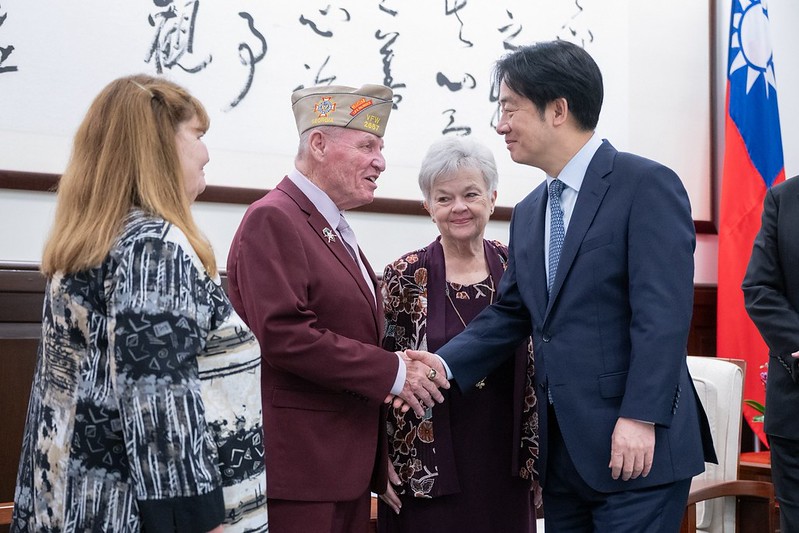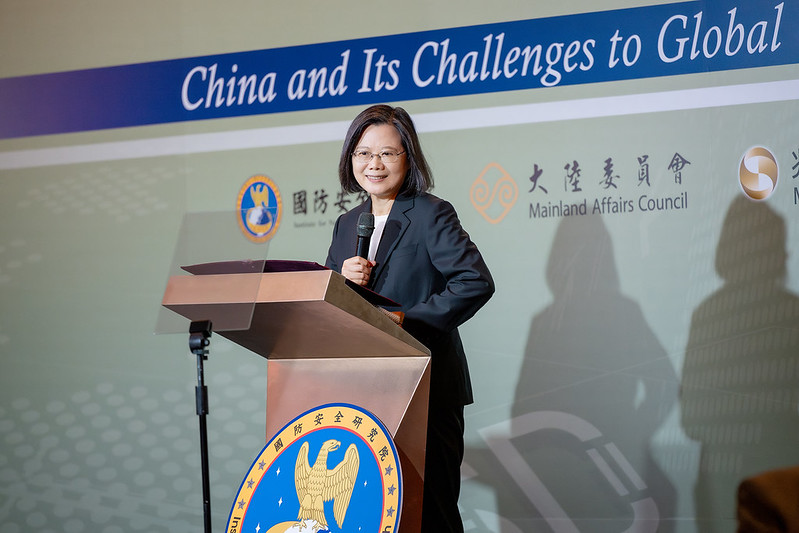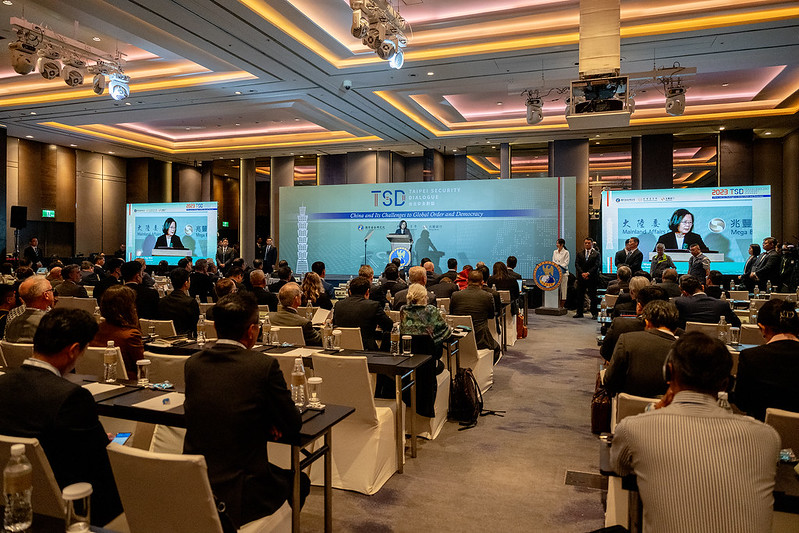News & activities
 News releases
News releases
On the morning of November 8, President Tsai Ing-wen attended the opening of the 2023 Taipei Security Dialogue. In remarks, President Tsai stated that Taiwan's security is tied to the security of the Indo-Pacific and the world, and that the people of Taiwan are determined to protect our own hard-earned freedoms and democracy. As a responsible member of the international community, the president said, Taiwan will continue working to maintain regional peace and stability, while expanding and deepening our partnerships with other stakeholders. She noted that Taiwan has proven that it is a secure and reliable partner with a deep commitment to democracy.
President Tsai said that with democracies around the world facing their greatest tests in a generation, it is crucial that we come together in deterring adventurism and aggression in the region, to ensure a peaceful future and the continuation of our shared values.
A transcript of President Tsai's remarks follows:
Let me begin by welcoming you all to the 2023 Taipei Security Dialogue, especially our friends who have traveled to Taiwan to join us here. I also want to take this opportunity to thank INDSR for organizing this event, bringing together experts from around the world to discuss some of the most serious global security issues.
We are living in a time of tremendous uncertainty. In recent years, major conflicts and an unprecedented pandemic have destabilized the global economy and threatened the world order.
Today, Ukraine continues to fight against the Russian invasion, while conflicts continue to break out in the Middle East. It is clear that we cannot take peace for granted in the face of these mounting security challenges.
To make sure that the global order is not eroded during such times of instability, we must remain steadfast in our defense of freedom and democracy. Perhaps the most pressing threat to these values comes from authoritarian regimes.
In the Indo-Pacific, escalating gray-zone activities have created serious instability in the region. This includes maritime intimidation in the South and East China seas.
Taiwan has, in particular, been challenged by increasingly frequent incursions into our ADIZ and military exercises in our vicinity. We have also had to face economic coercion and persistent cyberattacks. Taken as a whole, these hybrid tactics are designed to deplete Taiwanese people's confidence in our democracy, and to undermine our resolve to defend ourselves.
But despite such challenges, we have been encouraged by the many statements of support for regional peace and stability from the international community.
Following their summit in Hiroshima this past May, the leaders of the G7 released a communiqué, which reaffirmed "the importance of peace and stability across the Taiwan Strait as indispensable to security and prosperity in the international community." And just last month, during a state visit to the United States, Australian Prime Minister [Anthony] Albanese joined President [Joe] Biden in expressing their opposition to unilateral changes in the cross-strait status quo. Their example follows that of many other world leaders who have voiced their concerns over the security of our region.
The people of Taiwan are determined to protect our own hard-earned freedoms and democracy. Our priority is, therefore, to enhance our self-defense capabilities and social resilience. Over the past year, we reinstated one-year mandatory military service, provided conscripts with more realistic training, and reorganized our force structure to ensure that our servicemen and women can meet the challenges of modern warfare. Our national defense budget has also continued to rise for eight consecutive years, with a 7.7 percent year-on-year growth rate, and will account for nearly 2.5 percent of GDP in 2024.
This past September, Taiwan's first indigenous submarine prototype was launched, representing a key milestone in our naval vessel production program which was deemed too ambitious to many. All these achievements are testament to our unwavering resolve to defend our country.
In addition to building combat capabilities, Taiwan also has had to fight against non-conventional threats. Authoritarian actors' cognitive warfare, in the forms of mis- and/or disinformation, attempt to exploit and drive polarization in our free and democratic society.
As a democracy, Taiwan's response to disinformation is consistent with democratic principles. We equip our people with the knowledge and tools to refute and report false and misleading information, so as to maintain a careful balance between sustaining the free flow of information and denying information manipulation.
Our government provides real-time clarification of disinformation to the public, and shares our expertise with international partners. And our civil society organizations have stepped up to provide media literacy training, detailed reports on disinformation, and innovative fact-checking tools.
We are also enhancing the resilience of our society by refining reserve training and civil defense. Aside from assisting in military operations, Taiwan's civil defense system provides support with tasks necessary to ensure the continued functioning of society.
We are taking a comprehensive approach to advancing multi-layered deterrence and self-sufficiency in national defense. The Taiwanese people recognize the importance of safeguarding our homeland, not only to ourselves, but also to our neighbors and partners.
It bears reminding that Taiwan's security is tied to the security of the Indo-Pacific and the world. As a responsible member of the international community, Taiwan will continue working to maintain regional peace and stability, while expanding and deepening our partnerships with other stakeholders. Taiwan has proven that it is a secure and reliable partner with a deep commitment to democracy.
With democracies around the world facing their greatest tests in a generation, it is crucial that we come together in deterring adventurism and aggression in the region, to ensure a peaceful future and the continuation of our shared values.
I want to thank you all for being here today, helping develop a better understanding of the threats we face and a vision of sustained freedom, democracy, and security in the region. I am sure, today's discussions will contribute toward a freer, more peaceful global community.
Members of the foreign diplomatic corps in Taiwan were also in attendance at the event.
